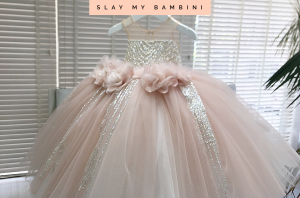
Groundbreaking new parenting research shows that a strong emotional attachment between a mother and her baby may help prevent diseases, boost immunity, and enhance a child’s IQ.
You take your baby to the pediatrician for her regular check-ups, vaccines, and at the first sign of a fever. You keep her away from runny-nose friends and steer clear of the sun. You babyproof your home and gently bandage her boo-boos. All to make sure your child grows up healthy and strong. But compelling new research is showing that the strength of your emotional bond with your baby may well trump all of those other measures you take to help her thrive.
A close attachment can prevent diseases, boost immunity, and enhance IQ in your baby, says Deepak Chopra, M.D., the endocrinologist turned mind-body — medicine guru, Parenting contributing editor, and coauthor of Magical Beginnings, Enchanted Lives: A Holistic Guide to Pregnancy and Childbirth. Those hugs and kisses are a force of nature more powerful than ever thought, says Dr. Chopra. Mother-child bonding has evolved to become a complex physiological process that enlists not just our hearts, but our brains, hormones, nerves, and almost every part of our bodies. On the following pages, you’ll see that process at work in 3-D images from TheVisualMD.com. (All of the images from TheVisualMD.com and associated research were made possible by a grant from Mead Johnson Nutrition, the makers of Enfamil.) Here, an inside look at how the bond forms, how to strengthen it, and why TLC may be more powerful than DNA.
The cuddle connection
There are decades of evidence to back up Dr. Chopra’s claims. In one study from Ohio State University, rabbits that were cuddled by researchers were protected against the artery-clogging effects of a high-cholesterol diet. The love and attention affected the rabbits’ hormone levels, the study authors concluded, helping them withstand heart disease. Researchers at McGill University in Montreal found that some female rats took more time and care to lick their infant pups than others; the pups that were licked frequently grew up to be less stressed and more adventurous in temperament, while pups that weren’t groomed as much exhibited nervous, stressed-out behavior. And yet another study, published in Pediatrics, found that premature babies who were stroked gained nearly 50 percent more weight than those who were not. Such skin-to-skin contact (known as kangaroo care) has been shown to have other health benefits for preemies, too.
It’s well known that the nipple stimulation that occurs when a baby nurses causes a hormone called oxytocin to be released in the mom, which in turn triggers milk let-down. But oxytocin is also called the “love hormone” because it’s produced during orgasm and other affectionate moments. In fact, oxytocin behaves in the brain much the same way that morphine does; it turns on our “reward” center, easing pain, making us feel good, and causing us to crave that emotional high again and again. Women who don’t breastfeed, or choose to eventually switch to or supplement with formula, happily do not miss out on the “love drug.” Simply gazing into your baby’s eyes while bottle-feeding or just snuggling or massaging also unleashes the feel-good hormones in both of you.
From smells to smiles
There’s more evidence that we’re hardwired to connect with our kids: Pheromones — the chemicals we secrete to attract a partner — are also secreted by our babies, ensuring that we’re similarly smitten with them. In one study, 90 percent of moms were able to identify their newborns by scent alone after having spent as little as ten minutes with them. When the moms spent an hour with their babies, 100 percent of them correctly distinguished their own baby’s smell from the smell of other infants.
A baby recognizes his mother’s scent, too. Last year, researchers in Japan found that infants who smelled their own mother’s milk while undergoing a routine heel-stick procedure exhibited fewer signs of distress than babies who were exposed to the odor of another mother’s milk, formula, or nothing at all. The mere scent of their mother’s breast milk was enough to calm the newborns and ease pain. Here’s an interesting aside: The act of kissing may have evolved as an affectionate gesture because it puts our nose in direct contact with the base of our partner’s nostrils, where pheromones are generated.
Just as scent motivates you to care for your child and motivates your child to stay close to you, so too does a smile. In a recent study conducted at the Baylor College of Medicine, in Houston, brain MRIs were taken of women while they looked at photos of their own children and of other kids making sad, happy, and neutral faces. The scans found that when a woman saw a photo of her own child, the parts of her brain associated with rewards processing (meaning they make you feel good!) were activated, and even more so when she saw photos of her child smiling. It’s all very primitive: Mom make Baby smile, Mom get reward, Mom want to make Baby smile again.
The long and short of it: We’re designed to become addicted to our offspring. “The mother-child bond assures infant survival in terms of protection, nutrition, and care,” says Francesca D’Amato, M.D., a behavioral neuroscientist in Rome and a prominent bonding researcher.
The Soothing Solution
But what about nature? Don’t genes have the central role in a child’s physical and emotional development? Well, maybe. But huge strides have been made recently in the field of epigenetics, the study of how environmental factors — everything from what you eat to how much you exercise to the amount of pollution you’re exposed to — can physically alter certain genes, causing them to, in very crude terms, switch “on” or “off.” Epigenetics explains why one identical twin might develop an inheritable disease while the other does not — turning the whole nature vs. nurture debate on its head.
The amount of physical and emotional affection a child receives is another one of those environmental factors that can influence genes. It works like this: Newborns are disorganized bundles of nerves. They literally don’t know what to do with themselves and they’re incredibly sensitive to hunger, temperature changes, pain, light?everything. They need to be held and soothed to help them regulate all the new sensations. Basically, they’re under stress, and it’s no news that stress is a physical burden. When we’re stressed, our immunity goes down and we’re more likely to get sick. When babies are consistently stressed, it can permanently affect their immunity. “Immune cells have memory of experiences,” says Dr. Chopra. Stress on a child (in the form of neglect or abuse) can alter the genes that control immunity because the immune cells will always “remember” the damage. A study last year of more than 9,000 adults who experienced physical, emotional, or sexual abuse as children found that a whopping one third of them were hospitalized for autoimmune diseases as adults, compared to only 8 percent in the general population. Childhood trauma imparted them with a 70 to 100 percent increased risk of developing certain conditions such as Graves’ disease, Crohn’s disease, lupus, rheumatoid arthritis, and more.
Nurturing know how
So how do you develop this miraculous, mystical connection? It doesn’t always come naturally: What about the women who are too sore or exhausted or anxious to feel those surges of pleasure when holding their newborns or trying to learn to nurse them? The women who suffer from postpartum depression? The women with colicky babies who can’t seem to soothe them no matter how desperately they try? Women who adopt? Women who have multiple births or other children competing for their attention? It’s all okay if you don’t or can’t fall madly in love with your baby at first sight — or even until months later. You just have to do your best to care for him. “Bonding is not an instant glue — it develops over time and every family is different,” says pediatrician William Sears, M.D., author of The Baby Book and a father of eight. “Just because you didn’t hold your baby the first hour after she was born, or you didn’t breastfeed, doesn’t mean it’s all over.” In fact, if you care enough about your child that you are reading this article, it’s safe to say you’re doing your best — and that your best is going to be more than good enough for your baby.
Know, too, that it’s not just up to you! As a society, we frequently fail to give mothers the support they need, which also muddies the bonding process, notes Dr. Chopra. How can a woman be expected to establish a deep bond when she doesn’t have paid maternity leave and must return to work too soon after giving birth? In fact, the U.S. is one of the few developed countries that doesn’t mandate any paid maternity leave. “The responsibility is not just the mother’s,” says Dr. Chopra. “Her partner, family, neighbors, and coworkers all need to help ease her transition into motherhood. A mom needs time to herself to recharge; otherwise, she won’t be able to give her baby the quality of attention he needs.” And it’s the quality, not the quantity, that truly matters, he insists; you needn’t worry that working will interfere.
So ignore your e-mails and forget about the laundry. Don’t stress about vacuuming or entertaining guests. Let bonding with your baby become your priority. Lie around with her, doing nothing. Cuddle. Play. Dr. Chopra believes in “nourishing all of your baby’s senses” by holding her, massaging her, singing to her, using soothing scents (lavender, rose, vanilla), and showing her colorful, interesting shapes and objects. Remind yourself that you’re building a connection that will comfort both of you for years and years. And when you need a break, take one.
Dr. Chopra rhapsodizes about the start of the amazing journey that is the relationship between a parent and a child: “A single-cell embryo divides only fifty times to become one hundred trillion cells, which is more than all the stars in the Milky Way galaxy.” Once your baby is born, all the cells in both of your bodies act in secret synchronicity to create those simple but incredible connections between the two of you. But despite all of the science involved, it’s the power of your love — pure and simple — that can protect your child from illness, shape her future relationships, and rearrange her genes to her benefit. In a year or so, when you kiss your toddler’s boo-boo better, she’ll think you’re magical. And the truth is, you are.
By parenting





